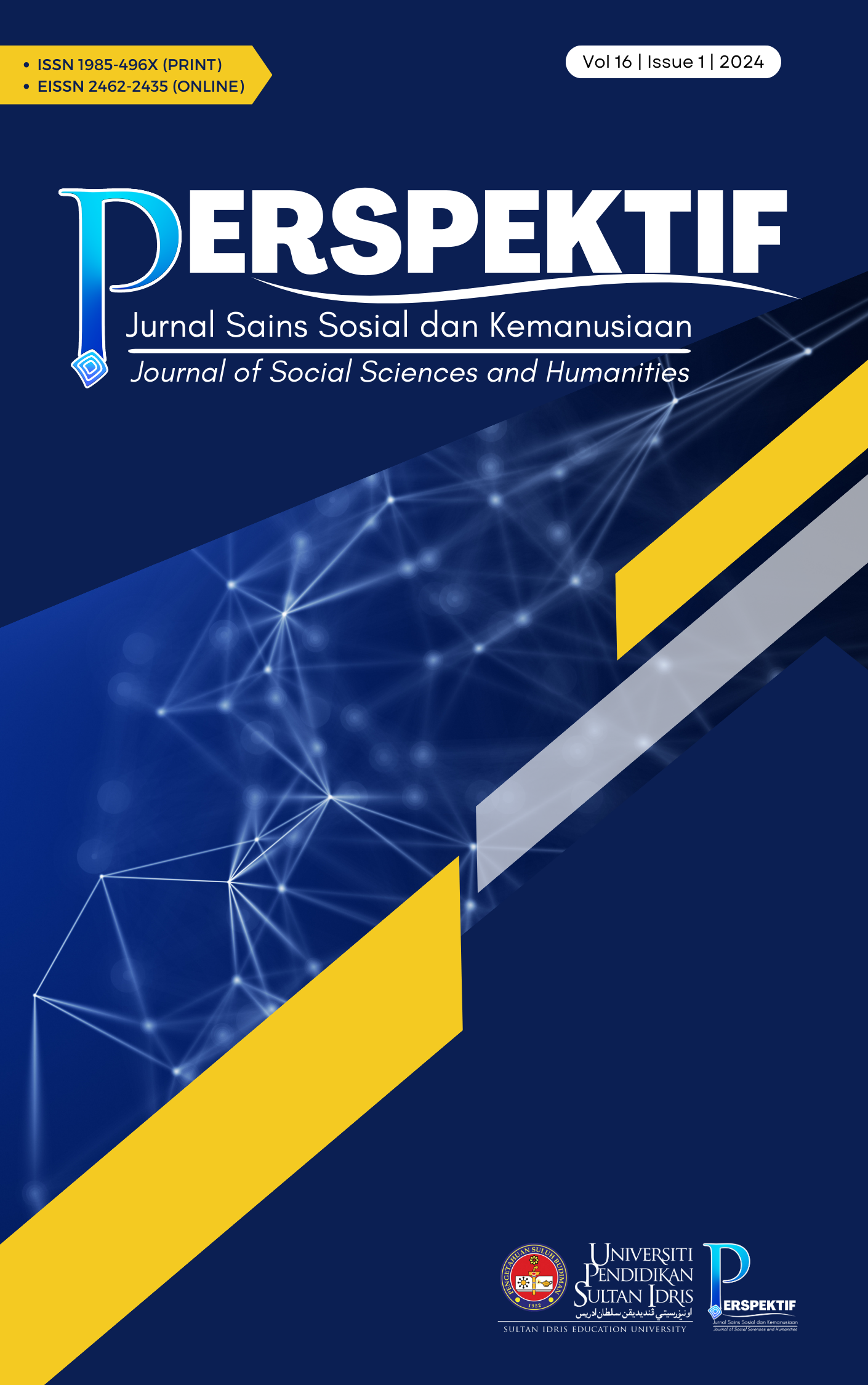Higher Education Transformation in Malaysia: Challenges and Opportunities in the Era of Industrial Revolution 4.0 (IR 4.0)
DOI:
https://doi.org/10.37134/perspektif.vol16.2.11.2024Keywords:
Higher Education, Transformation, Challenges, Opportunities, Industrial Revolution 4.0Abstract
The transformation of higher education in Malaysia has become a central focus in addressing the challenges and opportunities brought by the Fourth Industrial Revolution. In an effort to enhance the education system, various strategies have been introduced to ensure the efficiency and competitiveness of the nation’s higher education institutions. One of the key challenges is the need to align the curriculum with the rapidly changing demands of the labor market. The Fourth Industrial Revolution has significantly reshaped the skills required for the workforce, with a strong emphasis on artificial intelligence, machine learning, data analytic, and related technologies. Therefore, improvements in higher education are crucial to ensuring that graduates are equipped to thrive in an increasingly complex and advanced environment. Nevertheless, this transformation also presents vast opportunities for innovation and growth. Higher education must become a driving force for change, producing a workforce that is globally competitive and of high quality. Empowering students with technological and entrepreneurial skills is essential to ensuring that graduates not only meet market demands but also create new job opportunities. Additionally, the integration of technology into teaching and learning processes is a critical component of this transformation. Student-centered learning approaches, utilizing digital platforms and interactive learning tools, will provide a more dynamic and competitive learning experience. This transformation also requires adequate infrastructure and support to ensure the effective use of technology in education.
Downloads
References
Anne Marie, T. (2018). Advancements in industrial automation: Understanding the role of new technologies in manufacturing. Journal of Modern Industry, 14(3), 233-246.
Bilyalova, A., Frolova, E., & Merkulova, E. (2022). Transformasi digital dalam pendidikan: Had dan prospek pelaksanaan teknologi Revolusi Industri Keempat. Discover Education, 3(1), 45-60. https://doi.org/10.1007/s40622-022-00045-6
Gleason, N. W. (2018). Higher education in the era of the fourth industrial revolution. Springer.
González-Pérez, L. I., & Ramírez-Montoya, M. S. (2022). Komponen Pendidikan 4.0 dalam kerangka kemahiran abad ke-21: Ulasan sistematik. Sustainability, 14(3), 1493. https://doi.org/10.3390/su14031493
Intan Hazlina (2021). Pendidikan tinggi dan cabaran IR 4.0. Jurnal Pendidikan Tinggi, 25(2), 105-118.
Jay, A., Smith, B., & Tan, C. (2014). The role of big data in manufacturing industry competition. Journal of Business Strategy, 45(3), 234-246.
Joomla. (2015). Official Web Portal of Malaysia Technical University (MTU). Uthm.edu.my. https://mtun.uthm.edu.my/ms/
Maria Salih, S. (2008). Soft skills: A key to excellence in education. Asian Social Science, 4(6), 38-42.
Masri, S. N. (2022). The integration of 5G technology: New possibilities for distance learning in higher education. Journal of Educational Technology, 35(1), 45-58.
McKinsey Global Institute. (n.d.). About MGI. McKinsey & Company. Retrieved December 6, 2024, from https://www.mckinsey.com/mgi/overview/about-us
Mian, T., Hecklau, F., & Neaga, E. (2020). Pemetaan kecekapan untuk Industri 4.0 dan integrasinya dalam kurikulum pendidikan tinggi. Frontiers in Education, 5(2), 156-168. https://doi.org/10.3389/feduc.2020.00156
Mohamad, N. (2020). MDEC's role in accelerating Malaysia's digital transformation and promoting the national digital economy. Journal of Digital Economy and Innovation, 18(2), 112-126.
Muaza, S., Rumeli, Aizuddin, A., Jabatan, R., Profesional, P., Lanjutan, P., Fakulti, P., & Pendidikan. (2023). Meneroka kesediaan dan persepsi pemimpin pendidikan terhadap Revolusi Industri 4.0. International Journal of Education and Training (InjET), 9, 1-9.
Nikitina, S., & Furuoka, F. (2012). Human capital development in higher education: The role of soft skills. Higher Education Research & Development, 31(5), 773-783.
Nikitina, L., & Furuoka, F. (2012). Sharp focus on soft skills: A case study of Malaysian university students’ educational expectations. Education Research Policy Practice, 11, 207-224.
Norfaranieza binti Muhd Arifin. (2022, March 10). Trend pendidikan era Revolusi Industri 4.0. Dewan Kosmik. https://dewankosmik.jendeladbp.my/2022/03/10/2234/
Schwab, K. (2015). The Fourth Industrial Revolution: What it means, how to respond. World Economic Forum. https://www.weforum.org
Ustundag, A., & Cevikcan, E. (2018). The impact of Industry 4.0 on education systems: A global perspective. Journal of Education Technology and Innovation, 33(2), 118-130.
World Economic Forum. (2016). The future of jobs: Employment, skills, and workforce strategy for the Fourth Industrial Revolution. World Economic Forum.
Downloads
Published
How to Cite
Issue
Section
License
Copyright (c) 2024 Shahidah Hamzah

This work is licensed under a Creative Commons Attribution-NonCommercial-ShareAlike 4.0 International License.





